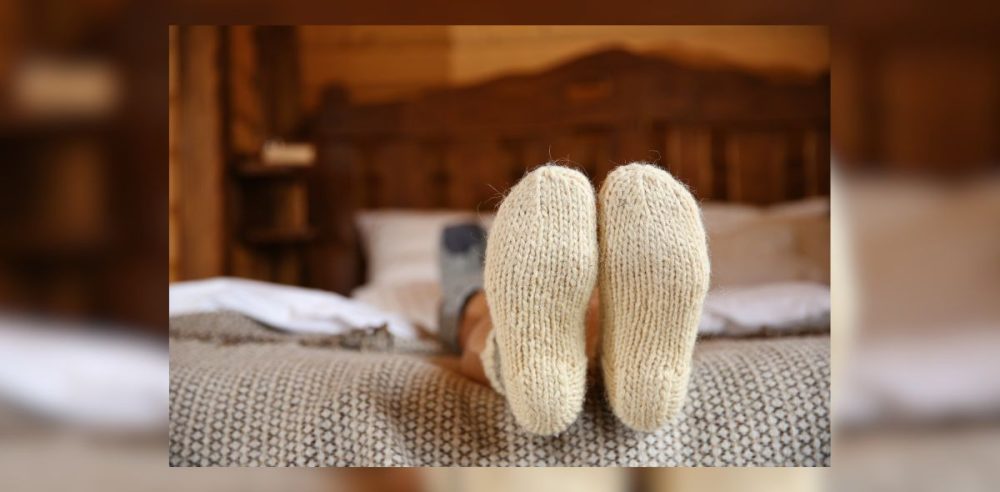The choice to wear socks while sleeping sparks passionate opinions. Some find them a cozy necessity for restful slumber, while others shun the idea entirely, calling it uncomfortable or even bizarre.
Despite these polarizing views, research suggests that wearing socks to bed may offer more than just warmth, potentially influencing sleep quality, circulation, and even intimacy, reported Yahoo!Life.
This age-old debate, it turns out, might have surprising health implications worth exploring.
Warming your feet before sleep could be more beneficial than you think. According to experts, donning socks at bedtime helps regulate body temperature by promoting vasodilation, the widening of blood vessels. As your core temperature cools during sleep, the extra warmth on your feet can aid in entering deeper, more restorative sleep stages. Some suggest experimenting with socks during sleep, even using sleep trackers to observe any changes in restfulness.
Beyond sleep quality, socks might have unexpected perks for romantic relationships. A small study by the University of Groningen found couples wearing socks during intimacy were more likely to achieve satisfaction compared to those who didn’t. Improved blood flow to erogenous zones may be the key here, offering another reason to consider those wooly layers. While the evidence isn’t definitive, it’s an intriguing footnote in the sock debate.
However, wearing socks to bed isn’t for everyone, especially those with certain medical conditions. Tight socks can impede circulation, while excessive warmth or poor hygiene may lead to skin irritation or fungal issues. Those with diabetes, foot infections, or a history of ingrown nails should consult a doctor before making socks a nighttime staple. Choosing breathable, moisture-wicking fabrics, such as merino wool or cashmere, can help minimize potential downsides.
Sock skeptics argue that while socks may offer benefits, they’re not the only way to improve sleep. Experts note that maintaining a cool bedroom, using lightweight blankets, and prioritizing general foot hygiene can also enhance restfulness without requiring bedtime socks. For many, these adjustments may offer a happy medium, blending comfort and health benefits.
For those ready to give bedtime socks a shot, the type of sock matters. Opt for socks that are snug but not tight, avoiding compression socks unless medically prescribed. Sleep-specific socks, often thicker and looser, can provide optimal comfort, but any breathable, well-fitted pair can do the trick. Changing socks nightly and maintaining clean, healthy feet further ensures a positive experience.
Ultimately, the sock debate comes down to personal preference. Whether you embrace socks for their cozy benefits or recoil at the thought of them, the key to better sleep is finding what works best for you.


